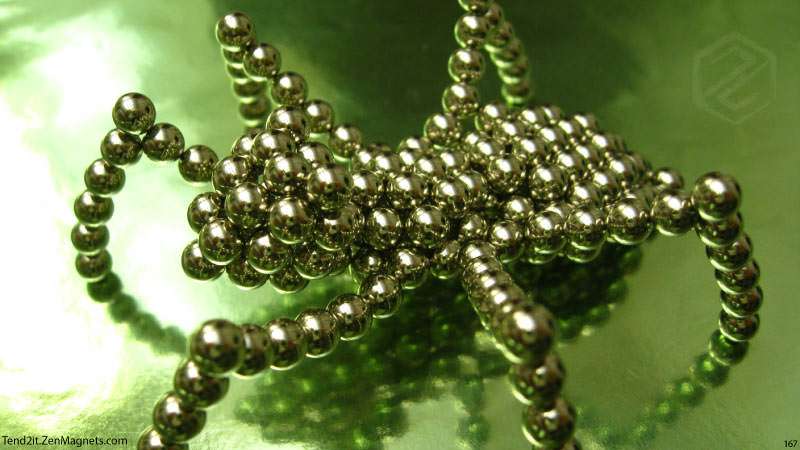CPSC Still Trying to Crush Small Round Magnet Toys; Last Surviving American Seller Zen Magnets Fights Back
Reason has long been on the beat regarding the federal Consumer Product Safety Commission's apparent vendetta against the little round magnets which were perhaps most famously sold by the company Maxfield & Oberton as "buckyballs," which you can use to form fascinating shapes.
We've reported extensively on the very personal way they went after Craig Zucker, CEO of Maxfield & Oberton. Zucker gave up and settled with the CPSC for a fine earlier this year. This was after Zucker, unlike most people targeted by CPSC, made fun of their crusade against his product publicly.

The CPSC wants those products off the market entirely, believing they represent an unacceptable risk to people who might eat them—not the recommend use, natch. The CPSC does not believe that warnings on the product or restricting their sale to above a certain age is good enough.
But one maker of the toys is still fighting against an CPSC lawsuit trying to drive them out of business as well.
Here's how the surviving fighter, of Zen Magnets from Colorado, describes their product and its uses, for those unfamiliar with their wonders:
small but curiously strong rare earth super-magnets, 5mm in diameter. How powerful? 8 Times more powerful than the ceramic magnets driving your speakers. 30 Times more powerful than the average fridge magnet.
Pull them into a chain, fold them into a fabric, and meld them into limitless shapes: both abstract and geometric, flat or 3D. Use them when you need to massage your mind, practice your patience, relieve some boredom or alleviate some stress.
Shihan Qu, who runs Zen Magnets, said to me in a written statement about his still-ongoing struggle:
I have two very distinct but related motives for continuing this fight.
The first one is obvious. I want to win. I want to keep selling magnets. I want to continue seeing the passion, joy, and inspiration they bring. I want to stay in business. I want to see a victory for magnets.
But number two, I want the CPSC to LOSE. I really really want them to lose. They need some humility and to be reminded of the standard of liberty in this country.
The single biggest issue that must be challenged, the aspect that makes this a landmark case, is that this is the first time the CPSC is arguing that warnings don't work, which has incredibly vast policy implications. Putting warnings on this is mostly what the CPSC does. Small parts, choking hazards, etc.
Warnings are a sort of agreement a customer accepts upon use of a product. And by assuming that people cannot follow -- by the way, there is still nobody who can confirm even a single Zen Magnet ingestion incident -- instructions to keep magnets away from children and mouths, they are assuming the American Population is not capable of deciding for themselves. They are taking your right to consent, and fleecing your freedom to do as you will.
We're the last line of defense, and if Zen Magnets doesn't stand up, the CPSC gains a remarkable amount of power from consumers. They show the ability to determine behind their closed walls, what America can and can't have, despite roaring public opposition. They set the precedence of creating an all-ages, nation-wide ban, with the assumption that an American cannot be "expected" to understand or follow warnings.
The fight is ongoing. The legal fight Qu is currently involved in, including ongoing weeks of depositions, is over the CPSC's suing for a recall from Zen Magnets, in a case heard by an administrative law judge. When that procedure is done, the CPSC will go ahead with its attempt to ban the products entirely via rulemaking. If Qu loses the first round, he has to appeal to a CPSC board; only after that can he take the matter to the federal court system.
Zen Magnets sponsors a website dedicated to the cause of keeping their product legal, Savemagnets.com.
At that site, Qu questions some of the CPSC's claims about the prevalance of harm caused by misuse of these magnet products.
The CPSC's online collection of documents related to the case.
The Denver Post on Zen Magnets' fight.
For what it's worth, a Public Policy Polling poll found only 6 percent of Americans supporting a total ban on the magnets.
The full Reason archive on the CPSC fight against these little magnets.


Show Comments (57)